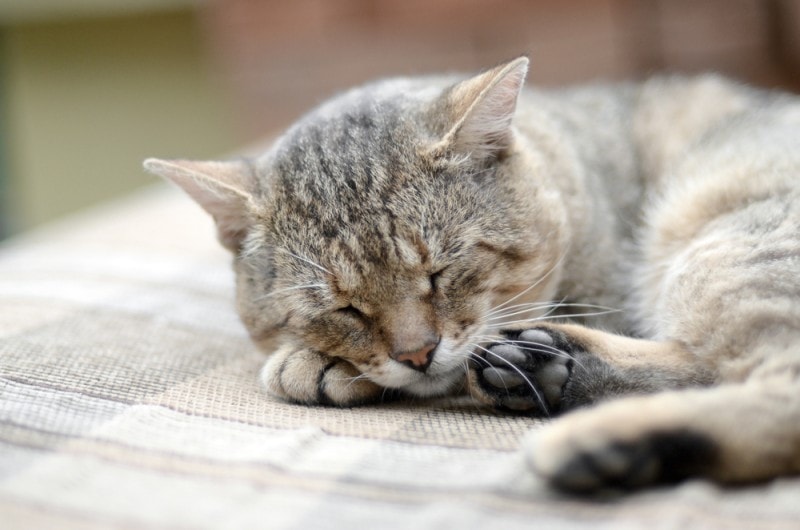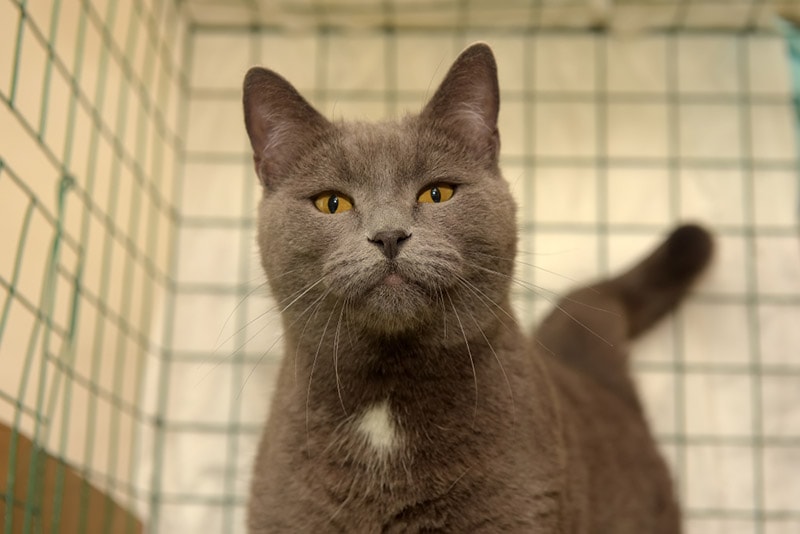Can Cats Eat Meatballs? Vet-Approved Facts & FAQ
Updated on
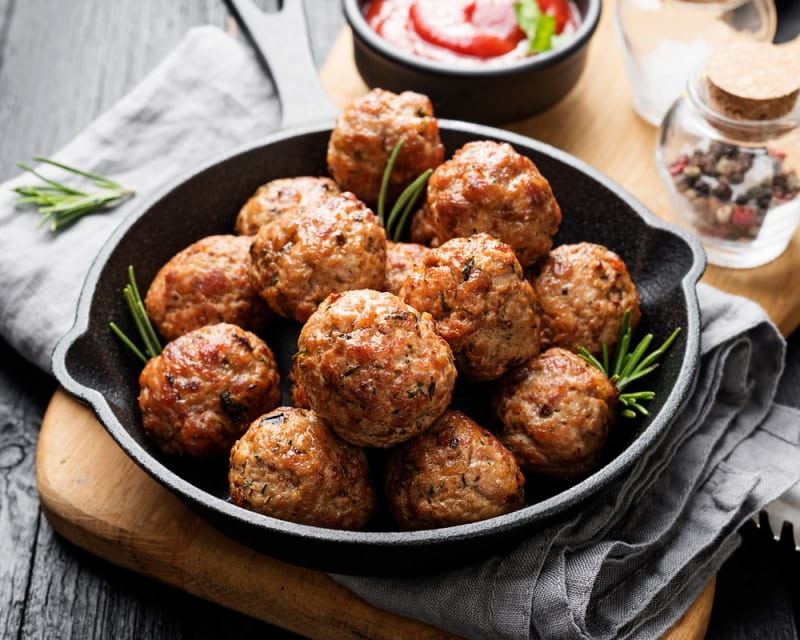
Click to Skip Ahead
There’s significant debate about whether or not cats can eat meatballs, and with good reason. The short answer is: it depends on the meatball, and not in large quantities.
Meatballs can be prepared in a variety of ways with many ingredients. While a small serving of ground meat used in meatballs is considered safe, the seasonings and sauces can be problematic. If you choose to give your cat a taste of a meatball, use caution, and be sure you know exactly what ingredients are included. In this article, you’ll learn the risks and safety measures of feeding your cat meatballs.
A Cat’s Digestive System
Cats are carnivores, meaning their diet largely depends on proteins found in meat. A cat’s digestive tract is fine tuned to digest animal products.
Cats need high levels of protein, moderate levels of fats, and low amounts of carbohydrates to maintain a healthy diet. With this in mind, meatballs seem like a perfect fit. However, due to the ingredients used and the amount of fat they contain, some meatballs are considered safe, and some aren’t.
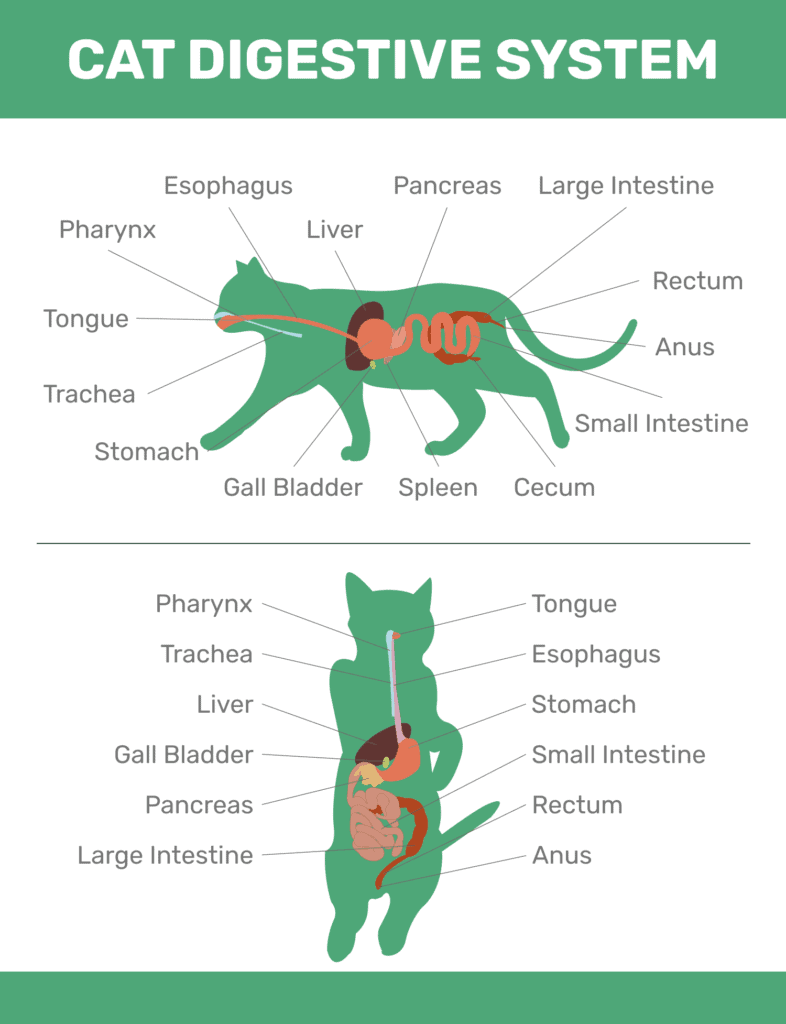
What is a Meatball?
A meatball can mean different things to different people, so let’s just briefly outline what’s involved in making a meatball here.
First of all, a meatball is more than a ball of meat. While meat, often different kinds such as pork and beef, are the main ingredient, they also usually contain breadcrumbs and egg to help hold it all together. Then the seasonings are added in, and here’s where people get creative. Salt, pepper, onion, garlic, herbs, and even condiments like ketchup and barbeque sauce can be tossed in to enhance the flavor.
The meat part of the meatballs, though potentially high in fat, shouldn’t be a big deal in small amounts. Even the egg (assuming your cat doesn’t have an allergy) and the breadcrumbs aren’t the culprits. It’s the extra additives, like the seasonings, that can cause problems for your kitty.
Benefits of Bland Meatballs for Cats
Cats require high amounts of protein to thrive. Protein helps cats grow strong muscles, maintain a healthy coat, and gives them energy. Protein from animal products is the easiest for a cat to digest, and therefore, the most beneficial.
Meatballs provide a high-protein, low-carbohydrate treat for cats. Meatballs also contain healthy vitamins and minerals that are used in your cat’s everyday functions.
High-quality cat food will provide all the nutrients that your cat needs. Plain meatballs should only be given as an occasional treat.

How to Feed Your Cat Meatballs
The most beneficial part of a meatball for a cat is the meat. So, meatballs that are simply that, are considered safe. Your cat doesn’t need the extra seasonings, like salt, garlic or onion to make them taste good. In fact, some of these spices can actually be toxic if consumed in high amounts. Making your own meatballs that contain just lean, ground meat are the best option for your cat. Assuming your cat doesn’t have any protein allergies, you can make them plain meatballs out of any ground meat, including beef, pork and even poultry.
Some ground meats, like beef, can contain high amounts of fat. Extra fat in a cat’s diet can lead to weight gain and obesity, which can also increase the likelihood of diseases such as diabetes and joint issues. When making meatballs for your cat, choose the leanest versions of ground meat that you can find.
You’ll also want to avoid slathering the meatballs in sauces. Again, cats don’t need them to add flavor to the meatball and they can contain harmful spices or sugar that your cat just doesn’t need.
What to Do if Your Cat Eats a lot of Meatballs
Meatballs are an enticing food for many cats and even if you don’t willingly give them to your cat, they may find their own way to indulge in them. If your cat happens to get ahold of a couple of meatballs, contact your vet. Make sure you know what ingredients are in the meatballs so your vet will be able to decide your next steps.
Chances are your cat will be fine, but you may need to monitor them for signs of digestive issues, such as vomiting, diarrhea, and stomach pain. If they happen to eat quite a few meatballs that contain potentially harmful spices, your vet may want you to bring your cat in.
Meatball Alternatives
Since there are many variations of meatballs that can be harmful to cats, searching for a healthy alternative treat might be your best option.
- Cooked turkey or turkey treats
- Lean, cooked beef
- Ground chicken, cooked
- Cooked eggs
- Lean cooked lamb
- Cooked liver
It’s best if your cat doesn’t eat undercooked or raw meat, as it may lead to illnesses.
FAQ
Regarding meatballs and ground beef, there are some common questions. Below are answers provided to clear up confusion on this topic.
Can Cats Eat Spaghetti?
Provided that the sauce and meatballs don’t contain any harmful ingredients, spaghetti can be considered safe for cats to eat. However, it’s not recommended. Pasta is high in carbohydrates that can lead to weight gain in cats and spaghetti sauce often contains a lot of sugar that cats also don’t need.
Can Cats Eat Cooked Meat?
Yes, most types of cooked meat are safe for your cat. However, you’ll want to choose lean cuts and only feed in moderation.
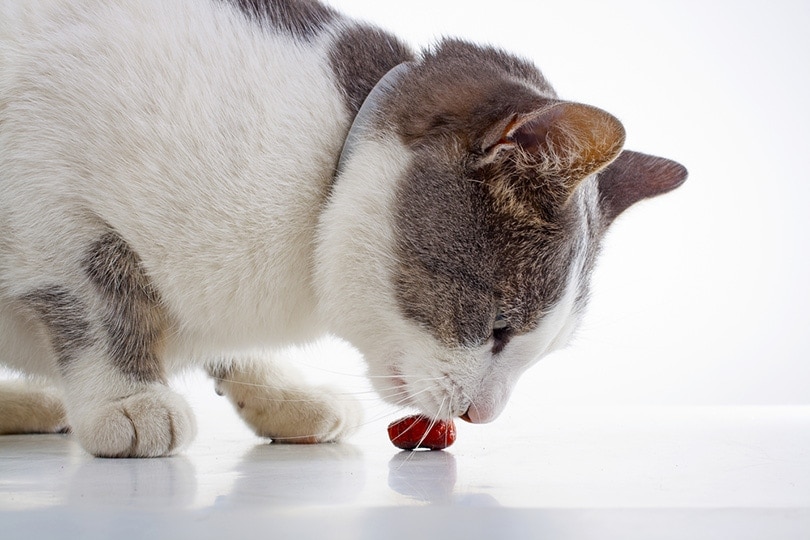
Can Cats Eat Ground Beef?
Yes, ground beef is safe for your cat as long as it’s cooked and doesn’t have added seasonings like salt, pepper, or other spices. Feed ground beef in moderation and choose a lean variety to prevent unwanted weight gain.
What Meats Are Unhealthy for Cats?
- Deli meat
- Bones
- Raw meat
- Cured meats like ham, bacon, or sausages
- Poultry skin
Conclusion
Meatballs can be safe for your cat to consume as long as they are made with lean ground meat with no added seasonings. Even so, meatballs should be considered a treat and only fed in moderation and not as part of a cat’s regular diet.
Related Reads:
- Green Lipped Mussel for Cats: Vet Approved Pros, Cons & Benefits
- Can Cats Eat Roast Beef? Vet-Approved Facts & FAQ
Featured Image Credit: nelea33, Shutterstock


